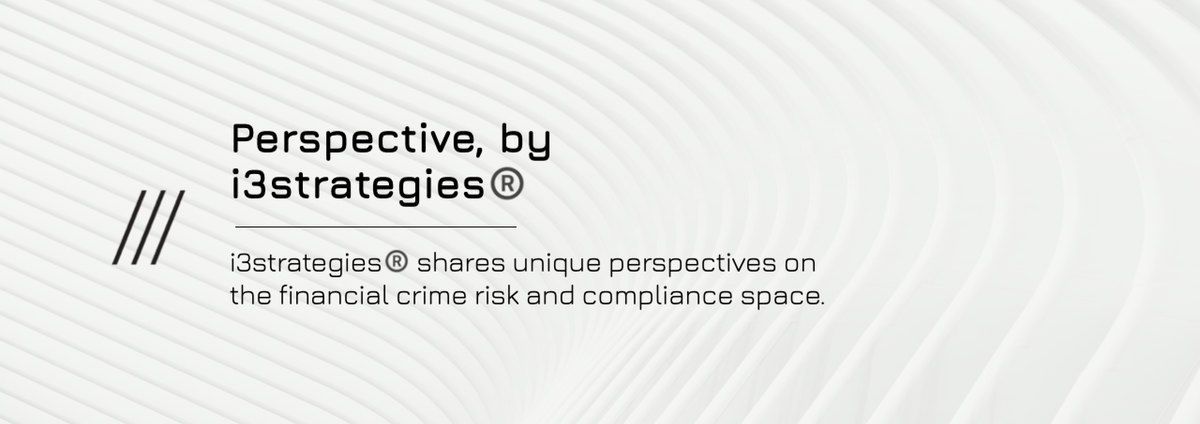For AML to modernize, we need more productive relationships between AML buyers and sellers

We recently listened to a few webinars where we heard BSA Officers talking some serious trash about FinCrime Compliance software vendors. We understand; at some point, most AML buyers have felt burned by a software purchase that failed to perform as some slick salesperson promised.
These lingering negative memories impede relationships between vendors and AML Officers, harming Financial Crime Compliance modernization.
As former buyers who’ve purchased millions of dollars of AML software products and consulting services, we understand the frustration when software does not perform as promised and consultants do not deliver value on time or on budget. Also, as software and consulting services sellers, we understand why buyers are wary and, in many cases, stand-offish.
Software vendors and consultants who play games should be punished in the marketplace. However, for AML to modernize, buyers and sellers need productive relationships. Let’s suggest a few ways to make this happen.
Think of AML As a Business
AML departments do not have a profit and loss statement. They do not seek customers, sell a product, or generate income and are often called a “cost center.” Unfortunately, many AML executives internalize this perception, harming how they see themselves and their teams and operate their departments.
The conscious and subconscious belief that AML departments are cost centers and must sit quietly in steerage class means AML management is often reluctant to request new technology systems or outside help from experts. It’s better to lay low and avoid attention, many AML executives believe. As a result, problems linger and grow over time, weakening compliance and putting financial institutions and the careers of AML officers at risk.
Shifting this mindset will improve AML compliance departments' operations and stature. AML leaders and teams should think of themselves as a business. The AML department does not generate revenue, but it is part of a business that does, and therefore, is also running a business.
Foremost, the AML team must satisfy regulatory requirements. Modern-thinking AML leaders see their role as more than just this, however. Your role is to run an effective operation that enables your company to grow. This does not mean that when you see risks to the CEO’s plan for growth, you stay silent. Part of “thinking like you run a business” is to speak up, make your case, and support it when needed.
AML leaders should look at vendors and consultants to support their goal of safe business growth. Software improves and strengthens operations which helps an AML department move in sync with business initiatives to grow your company’s revenue. Consulting services can provide valuable advice and guidance on improving operations that support the same growth goals.
Imagine, instead of running an AML operation, you were running a restaurant with similar goals - effective operations (order taking, cooking, serving), running safely (no nasty germs, gross tables, or filthy bathrooms) to increase profits. To do this, you rely on food and cleaning product vendors. What type of relationship would you cultivate with them? We grant that if the food or cleaning suppliers failed you in the past, you would not be happy. However, you would find new, better suppliers, not withdraw, and try to make do all on your own.
To find these new suppliers, you, as the restaurant manager, would do a few things just as you should do as an AML Officer. Here are some of those things:
Be Clear What You Want
Part of being an effective AML executive is clear and direct communication. This doesn’t mean being oppositional or hostile. When speaking with vendors and consultants, tell them the issues or problems you need to be fixed. Too often, AML officers are reluctant to share details about problems. This stems from the fear that revealing issues or problems reveal weaknesses which, when operating in such a highly regulated environment, means trouble. Get past this thinking. Good leaders identify areas of risk and address them. A good CEO and Board of Directors want this in their AML executives.
Cultivate Vendor and Consultant Relationships
When speaking with vendors or consultants, do things to create a better relationship. You want vendors and consultants you trust. Trust takes time, so we aren’t saying to forget past negative experiences; just learn from them to avoid a repeat.
Tell software vendors and consultants where you are in your buying process. If you are not looking to buy at the moment, but want to begin conversations to learn about their products or consulting services, say this. Good product companies and consulting firms will welcome the opportunity to build a relationship to help in the future.
If you have a specific need now, tell vendors and consultants. Tell them if you have a need but are still working to secure a budget. If you have buying approval, tell them that. This eliminates a lot of game-playing that leads to miscommunication and harms efforts to build trust.
Once you feel good about a vendor or consultant, share the issue you seek to address. And yes, your judgment about a vendor or consultant is based mainly on “feel.” As humans, we know what it feels like to speak with someone you think you may, at some point, trust. We also know what speaking with someone unlikely to earn your trust feels like. Once you feel good about a vendor or consultant, ask them to specifically explain (and we emphasize SPECIFICALLY) how their product or consulting advice addresses your issue.
The Seller’s Job
Sellers - don’t BS buyers. Ask thoughtful questions. Listen thoroughly. Understand the pressure a buyer faces when seeking budget approval. Make the buyer's job easier. Provide great information (product sheets or videos, well-written proposals, trial usage, proof of concept, customer testimonials, and use case examples). Buyers need this information to “sell” other decision-makers in their organization, many of who are reluctant to buy new software or services.
Be honest. If the buyer has problems A, B, and C and you solve for A and B, and not C, tell them. Don’t try to avoid C in the hopes your A and B are so awesome the buyer forgets about C. They may temporarily, but eventually, you have a pissed-off buyer. You got your commission, but how do you think your reputation in the market will hold up?
Instead, be clear with the buyer about what you do and don’t do. Help the buyer with problem C as best you can. If it is something you can develop, show them how you will do that, the time it will take, and the cost involved.
Everyone Be Human
To buyers, constant emails, LinkedIn messages, and cold calls are annoying. A suggestion - reply, “Thank you for reaching out, but we are not looking for a new system or consulting services. If you’d like to try again in 12 months, please do so. Thank you for taking me off your call list.”
When buyers say they are uninterested, sellers listen and stop bugging them.
Financial Crime Compliance remains stuck with too many old systems and outdated approaches. AML officers can solve many problems on their own, but not all. Modernization will only happen if buyers and sellers work together. For buyers, adopt a mindset that you are running a business and that no business operates properly without suppliers. Sellers: say and do things that create trust with buyers. This creates the environment necessary to improve and strengthen the fight against financial crime.
